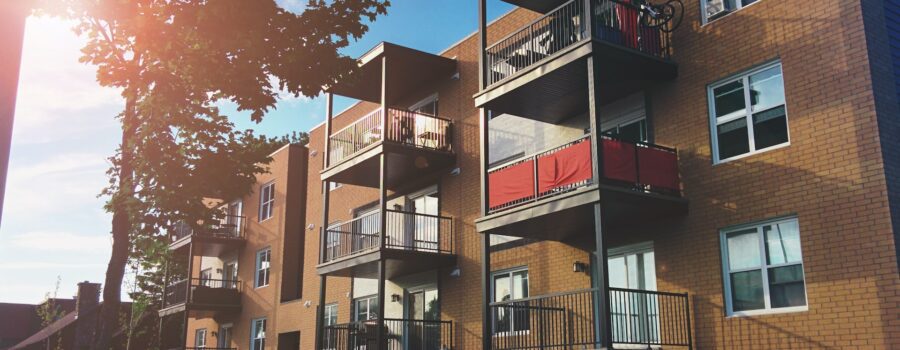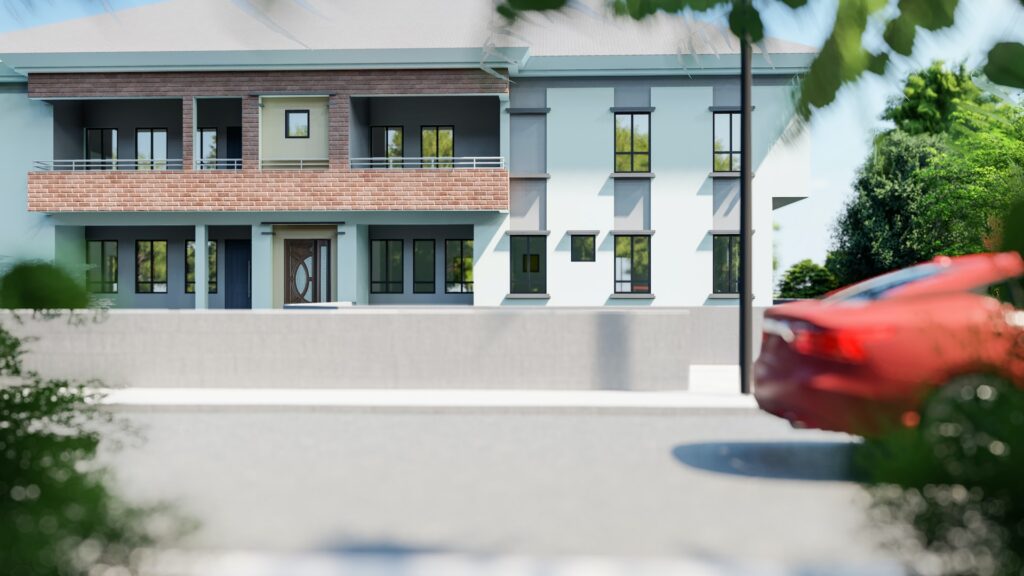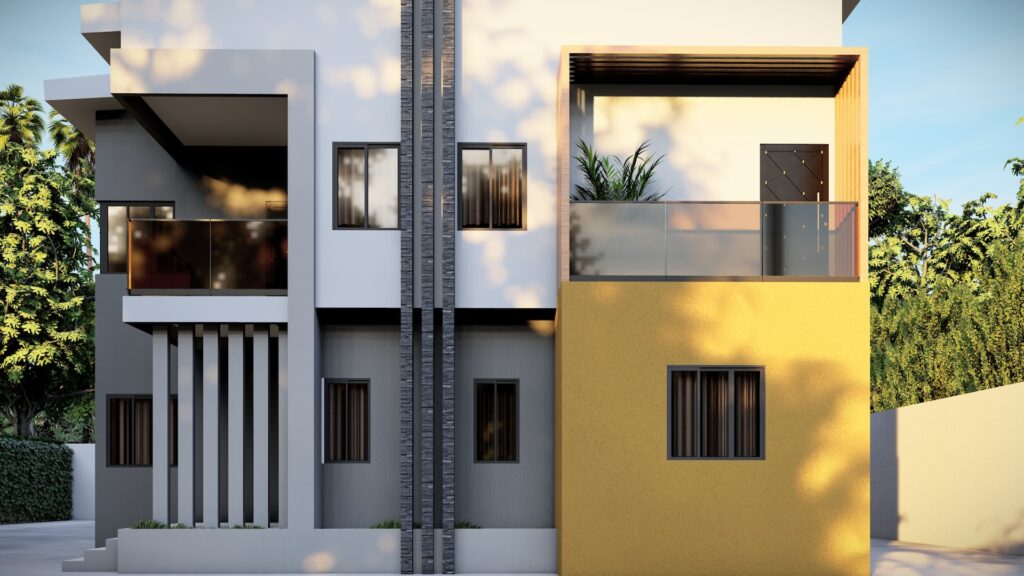
Understanding Duplex Properties
Duplex properties have become increasingly popular in real estate due to their unique blend of advantages for residents and investors. This comprehensive guide will delve deep into duplexes, exploring what they are, the various types available, the experience of living in one, the benefits of ownership, renting out a duplex, and even the considerations when selling one. Whether you’re a prospective buyer, a curious renter, or an investor looking to expand your portfolio, this article will provide valuable insights into duplex properties.
Introduction to Duplexes
A duplex is a versatile and practical housing option that offers the benefits of both single-family homes and apartments. It is a type of multifamily dwelling that consists of two separate living units attached to each other, either side-by-side or stacked on top of each other. Each unit has its own entrance and private living spaces, providing residents with a sense of independence and autonomy.
Definition of a Duplex
The term “duplex” comes from the Latin word “duplex,” meaning “double” or “twofold.” This aptly describes the structure of a duplex, as it essentially comprises two homes within a single building. Duplexes are often considered a middle ground between single-family homes and apartments, offering the privacy and space of a home while also providing some of the amenities and conveniences of an apartment complex.
Common Characteristics of Duplexes
Duplexes share several common characteristics that distinguish them from other types of housing. These characteristics include:
- Two separate living units: Each unit in a duplex is considered a separate dwelling, with its own entrance, kitchen, bathroom, and living spaces.
- Shared walls: Duplexes typically share a common wall between the two units, providing structural support and dividing the living spaces.
- Varied layouts: Duplexes can be configured in various ways, with units arranged side-by-side or stacked on top of each other. Some duplexes have two levels, with each unit occupying an entire floor, while others may have a tri-level layout with one or two floors dedicated to each unit.
- Single ownership: Duplexes typically have a single owner, who may choose to occupy one of the units themselves or rent out both units to tenants.
Advantages of Duplexes
Duplexes offer several advantages over other housing options, making them an attractive choice for a variety of homeowners and renters. These advantages include:
- Affordability: Duplexes are generally more affordable than single-family homes, as the cost of construction and maintenance is shared between two units.
- Privacy: Each unit in a duplex provides residents with their own private living space, reducing noise and enhancing privacy compared to apartments.
- Rental income potential: Owners of duplexes can generate rental income from the unoccupied unit, providing a potential source of passive income.
- Lower maintenance: Duplexes typically require less maintenance than single-family homes, as the shared walls and common areas reduce the need for individual upkeep.
- Sense of community: Duplexes can foster a sense of community among residents, as they share a common living space and may interact more frequently than residents of separate apartments.
Overall, duplexes offer a unique and appealing housing option that combines the privacy and space of a single-family home with some of the conveniences and affordability of an apartment. Whether you’re a homeowner seeking a more manageable property or a renter looking for a more private and spacious living arrangement, duplexes can provide a comfortable and practical living solution.

Types of Duplexes
Duplexes come in a variety of configurations, each with its own unique advantages and appeal. The two most common types of duplexes are side-by-side duplexes and stacked duplexes. While both types offer the benefits of a private living space and shared amenities, they differ in their layout and overall living experience.
Side-by-Side Duplexes
Side-by-side duplexes are the most common type of duplex. As the name suggests, these duplexes have two units situated side by side, sharing a common wall. This arrangement offers several advantages, including:
- Efficient Land Use: Side-by-side duplexes make the most of available land, making them a practical option for urban areas.
- Privacy and Independence: Each unit has its own entrance, living spaces, and yard, providing residents with a sense of privacy and independence.
- Separate Utilities: Each unit can have its own utilities, reducing the need for shared meters and billing agreements.
- Appealing to Investors: Side-by-side duplexes are often attractive to investors due to their potential for rental income.
Stacked Duplexes
Stacked duplexes, also known as up-down duplexes, have the two units stacked on top of each other. This arrangement offers a unique living experience and is often preferred by those who want to avoid stairs. Stacked duplexes also have several advantages, including:
- Space Efficiency: Stacked duplexes utilize vertical space, making them a good option for smaller lots.
- Variety of Layouts: Stacked duplexes can have a variety of layouts, with one or two floors dedicated to each unit.
- Appealing Views: The upper unit may offer stunning views, depending on the location and surrounding environment.
- Suitable for Multigenerational Living: Stacked duplexes can be a good option for multigenerational families, with grandparents living on one level and younger generations on the other.
Duplex Apartments in Urban Areas
In densely populated urban areas, the term “duplex” may take on a different meaning. Here, a duplex often refers to a two-story apartment within a larger multifamily building. These duplex apartments offer the benefits of a multi-story home within the convenience of an apartment complex. Urban duplex apartments often feature:
- Spacious Living Areas: Duplex apartments typically have more living space than traditional one-story apartments.
- Multiple Levels: The two levels provide a sense of separation and privacy, similar to a single-family home.
- Modern Amenities: Urban duplex apartments often feature modern amenities, such as rooftop terraces and in-unit laundry facilities.
- Proximity to Amenities: Urban duplex apartments are conveniently located near restaurants, shops, and cultural attractions.
Overall, duplexes offer a versatile and practical housing option that caters to a wide range of lifestyles and preferences. Whether you’re looking for the privacy and independence of a side-by-side duplex, the unique living experience of a stacked duplex, or the luxurious amenities of an urban duplex apartment, there’s a duplex configuration that perfectly suits your needs.

Living in a Duplex
Duplexes offer a unique blend of the privacy and independence of a single-family home with the convenience and amenities of an apartment complex. This hybrid housing option has gained popularity among renters and homeowners alike, providing an attractive alternative to traditional apartments and townhomes.
Pros and Cons of Living in a Duplex for Renters
Pros:
- More Privacy and Independence: Duplexes offer more privacy than apartments, as each unit has its own entrance and living spaces. This separation can reduce noise levels and enhance privacy.
- More Space and Amenities: Duplexes often have more living space than apartments, providing a more spacious and comfortable living environment. Additionally, duplexes may have amenities like a private backyard or patio, features often lacking in apartments.
- Lower Maintenance Responsibilities: As renters, duplex residents are typically not responsible for major maintenance issues, such as roof repairs or structural upkeep. These responsibilities fall on the landlord or property manager.
- Potential for Rental Income: For duplexes with multiple units, renters may have the opportunity to sublet the other unit, generating rental income to offset their own housing costs.
Cons:
- Shared Walls and Potential Noise: Sharing a wall with another unit can lead to noise concerns. While not always an issue, it’s important to consider the potential for noise transmission and the compatibility of your lifestyle with that of your neighbor.
- Limited Control Over Shared Spaces: In some duplexes, certain areas, such as the yard or laundry facilities, may be shared with the other tenant. This can limit your control over these spaces.
- Potential for Landlord-Tenant Issues: As with any rental situation, there’s always the possibility of landlord-tenant disputes. It’s crucial to communicate effectively with your landlord and address any concerns promptly.
Comparing Duplex Living to Apartments and Townhomes
Duplexes vs. Apartments:
- Privacy: Duplexes offer more privacy due to separate entrances and living spaces. Apartments, with shared common areas, may offer less privacy.
- Space: Duplexes often have more living space than apartments, providing a more spacious and comfortable living environment. Apartments may feel more cramped.
- Amenities: Duplexes may have private amenities like yards or patios, while apartments often share common amenities.
Duplexes vs. Townhomes:
- Layout: Duplexes typically have a side-by-side or stacked layout, while townhomes have a more distinct separation between units.
- Shared Walls: Duplexes share a common wall between units, while townhomes typically have separate walls.
- Amenities: Duplexes may have private amenities like yards or patios, while townhomes may have shared amenities or private yards.
Choosing the Right Housing Option for Your Lifestyle
The decision between a duplex, apartment, or townhome depends on your individual needs and preferences. Consider factors such as privacy requirements, desired living space, and amenity preferences. Visit open houses or schedule tours to get a firsthand feel of different housing options and make an informed decision that aligns with your lifestyle.

Buying and Owning a Duplex
Duplexes have emerged as an attractive investment option for those seeking to expand their real estate portfolio or secure a steady stream of rental income. These versatile properties offer a unique blend of the privacy and independence of a single-family home with the convenience and amenities of an apartment complex, making them appealing to both investors and homeowners.
Advantages of Investing in a Duplex
Investing in a duplex presents several compelling advantages:
- Potential for Dual Income Streams: Duplexes offer the potential to generate rental income from two separate units, providing a steady cash flow that can offset mortgage payments and generate additional profits.
- Equity Building and Appreciation: Owning a duplex allows you to build equity over time as the property value increases. This appreciation can significantly enhance your overall investment returns.
- Hedge Against Inflation: Real estate investments, including duplexes, have historically served as a hedge against inflation, providing protection against the erosion of purchasing power.
- Tax Advantages: Duplex owners may be eligible for various tax benefits, such as depreciation deductions and property tax deductions, which can reduce their taxable income.
- Owner-Occupied Option: Duplexes provide flexibility for owner-occupied scenarios. Owners can reside in one unit while renting out the other, effectively reducing their housing costs.
Strategies for Profitable Duplex Ownership
To maximize your returns and achieve financial success with your duplex investment, consider these strategies:
- Thorough Property Evaluation: Conduct a comprehensive evaluation of the property, including its condition, location, rental potential, and potential renovation needs.
- Strategic Financing: Secure favorable financing terms that align with your investment goals and financial capabilities. Explore various mortgage options and compare interest rates.
- Effective Tenant Selection: Carefully screen potential tenants to ensure they are financially responsible, compatible with the property rules, and likely to maintain the premises responsibly.
- Regular Maintenance and Upkeep: Maintain the property regularly to prevent costly repairs and preserve its value. Address tenant maintenance requests promptly to maintain satisfaction.
- Knowledgeable Property Management: Consider hiring a professional property management company to handle tenant issues, maintenance coordination, and rent collection, saving you time and effort.
Challenges and Considerations of Duplex Ownership
Owning a duplex comes with its own set of challenges and considerations:
- Landlord Responsibilities: As a duplex owner, you assume the responsibilities of a landlord, including handling tenant issues, managing maintenance requests, and ensuring compliance with local regulations.
- Vacancy Risk: Vacancies can significantly impact your rental income. Implement strategies to minimize vacancy periods, such as competitive rent pricing and efficient tenant screening.
- Potential for Repairs and Maintenance: Duplexes may require more frequent repairs and maintenance compared to single-family homes due to shared spaces and potential tenant damage. Factor in maintenance costs when calculating your potential returns.
- Financial Management: Effective financial management is crucial for successful duplex ownership. Track rental income, expenses, and mortgage payments to maintain a healthy financial position.
- Legal Compliance: Stay informed about local landlord-tenant laws and regulations to ensure compliance and avoid potential legal disputes.

Renting Out a Duplex: A Comprehensive Guide
Renting out a duplex can be a rewarding endeavor, providing a steady stream of income and potentially building equity over time. However, it’s essential to approach this process with careful planning and strategic decision-making to ensure a successful rental experience. This guide will delve into the crucial steps involved in renting out your duplex, from preparing the property to finding reliable tenants and navigating legal considerations.
Preparing the Property for Rental
Before welcoming tenants into your duplex, it’s paramount to ensure the property is in a habitable condition. This involves addressing any maintenance issues and creating a welcoming and functional living space. Here are some key aspects to consider:
- Structural Integrity: Ensure the foundation, walls, and roof are structurally sound to provide a safe and secure living environment.
- Essential Systems: Verify that essential systems, such as heating, air conditioning, plumbing, and electrical systems, are in proper working order to maintain comfort and functionality.
- Interior and Exterior Maintenance: Address any interior or exterior repairs, such as fixing cracks, painting walls, and repairing damaged flooring or woodwork.
- Cleanliness and Sanitation: Thoroughly clean the entire duplex, including deep cleaning carpets, disinfecting bathrooms, and ensuring all areas are free of debris and pests.
- Safety Compliance: Install smoke detectors and carbon monoxide detectors in all designated areas to meet safety regulations.
Finding Suitable Tenants
One of the most critical aspects of successful duplex rental is finding reliable and compatible tenants. Here are some effective strategies to attract suitable occupants:
- Competitive Rent Pricing: Research comparable rental properties in the area to determine a competitive rent that aligns with market value and attracts quality tenants.
- Effective Advertising: Utilize various advertising channels, such as online listing platforms, local newspapers, and community bulletins, to reach a wide range of potential tenants.
- Thorough Screening Process: Implement a comprehensive screening process to assess applicants’ creditworthiness, rental history, and employment stability.
- Clear Rental Agreement: Create a clear and detailed rental agreement that outlines the terms and conditions of the lease, including rental obligations, maintenance responsibilities, and dispute resolution procedures.
- Professional Communication: Maintain open and professional communication with potential tenants, promptly addressing their inquiries and concerns throughout the application process.
As a landlord, understanding and adhering to landlord-tenant laws is crucial to protect your rights and ensure a harmonious rental experience. Here are some key legal considerations:
- Local Landlord-Tenant Laws: Familiarize yourself with local landlord-tenant laws, including eviction procedures, security deposit regulations, and tenant rights.
- Lease Agreement Compliance: Ensure the rental agreement complies with all applicable laws and regulations, providing clear and enforceable terms for both parties.
- Fair Housing Practices: Adhere to fair housing practices, avoiding any discriminatory actions based on race, religion, national origin, gender, or other protected characteristics.
- Maintenance Responsibilities: Clearly outline the division of maintenance responsibilities between the landlord and tenants, specifying who is responsible for repairs and upkeep.
- Dispute Resolution Procedures: Establish clear procedures for addressing tenant complaints and resolving disputes in a timely and amicable manner.
By following these comprehensive guidelines, you can effectively prepare your duplex for rental, attract reliable tenants, and navigate legal considerations to ensure a successful and rewarding rental experience.

Selling your duplex can be a significant decision that involves careful planning, strategic preparation, and an understanding of the prevailing market conditions. This guide will delve into the various aspects of successfully selling your duplex, from determining the optimal time to sell to preparing your property for a successful sale and exploring options for reinvesting or utilizing the proceeds after the sale.
Assessing the Right Time to Sell Your Duplex
Timing plays a crucial role in maximizing the return on your duplex investment. Several factors influence the decision of when to sell:
- Equity Consideration: Evaluate the equity you have built up in the property. A higher equity level can translate into a larger profit upon sale.
- Market Conditions: Assess the current real estate market trends in your area. Favorable market conditions, such as rising property values and low interest rates, can increase the potential sales price.
- Personal Investment Goals: Consider your long-term investment objectives. If your goals align with reinvesting in real estate, selling your duplex may provide the necessary capital.
- Lifestyle and Personal Needs: Evaluate whether your personal circumstances, such as a change in family size or relocation plans, necessitate selling the duplex.
Preparing for a Duplex Sale: Maximizing Your Property’s Value
Preparing your duplex for a successful sale involves enhancing its appeal to potential buyers and showcasing its best features. Here are some key steps to consider:
- Thorough Property Inspection: Conduct a comprehensive inspection of the property to identify any maintenance issues or repairs that need to be addressed.
- Curb Appeal Enhancement: Improve the property’s exterior appearance by landscaping, power washing, and making minor repairs to doors, windows, and walkways.
- Interior Staging and Updates: Stage the interior to create a welcoming and inviting atmosphere. Consider decluttering, deep cleaning, and making minor updates to fixtures and décor.
- Professional Photography: Engage a professional photographer to capture high-quality images that highlight the property’s best features.
- Competitive Market Pricing: Research comparable sales in the area to determine a competitive asking price that reflects the property’s value and market conditions.
Options After Selling Your Duplex: Reinvesting or Exploring New Avenues
Once you have successfully sold your duplex, you have various options for utilizing the proceeds. Consider these potential next steps:
- Reinvesting in Real Estate: Reinvest the proceeds in another real estate venture, such as purchasing a larger property or diversifying your portfolio with different types of real estate investments.
- Debt Repayment: Utilize the proceeds to pay off existing debts, such as mortgages or personal loans, reducing your financial obligations and improving your overall financial standing.
- Pursuing Personal Goals: Allocate the funds to pursue personal goals, such as funding education, traveling, or starting a business.
- Financial Diversification: Diversify your investments by exploring alternatives to real estate, such as stocks, bonds, or mutual funds.
- Retirement Planning: Contribute to your retirement savings, such as an IRA or 401(k), to secure your financial future.
Selling your duplex can be a rewarding experience that provides opportunities for reinvestment, debt reduction, or pursuing personal goals. By carefully considering the timing, preparation, and post-sale options, you can maximize the return on your investment and make informed decisions that align with your financial aspirations.
Conclusion
In conclusion, duplex properties offer a versatile and appealing option in real estate. Whether you’re looking to rent, buy, or invest, understanding the intricacies of duplex living and ownership is crucial for making informed decisions. As you embark on your journey into the world of duplexes, remember the valuable insights and considerations presented in this guide.

Jason Somers, President & Founder of Crest Real Estate
With over 15 years of professional experience in the Los Angeles luxury real estate market, Jason Somers has the background, judgement and track record to provide an unparalleled level of real estate services. His widespread knowledge helps clients identify and acquire income producing properties and value-ad development opportunities.
Learn more about Jason Somers or contact us.



